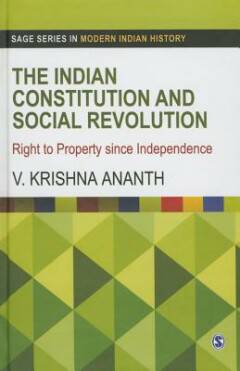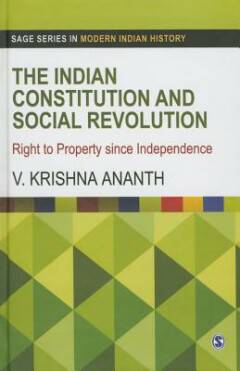
- Retrait gratuit dans votre magasin Club
- 7.000.000 titres dans notre catalogue
- Payer en toute sécurité
- Toujours un magasin près de chez vous
- Retrait gratuit dans votre magasin Club
- 7.000.0000 titres dans notre catalogue
- Payer en toute sécurité
- Toujours un magasin près de chez vous
Description
This book highlights the evolution of India's Constitution into a tool for social revolution, tracing the various stages through which the law on the Right to Property and its relationship with the idea of socialism--as laid out in Parts III and IV of the Constitution--have evolved.
It underlines that the road to social revolution has been marked by a process where attempts to give effect to the idea of justice--social, economic, and political--as laid down in the Preamble have achieved a measure of success. If the Constitution, including the Preamble, is to be viewed as a contract that the people of India had entered into with the political leadership of the times and the judiciary being the arbitrator to ensure justice, it may be held that the scheme has worked. This book traces this history by placing the judicial and legislative measures in the larger context of the political discourse.
Spécifications
Parties prenantes
- Auteur(s) :
- Editeur:
Contenu
- Nombre de pages :
- 534
- Langue:
- Anglais
- Collection :
- Tome:
- n° 16
Caractéristiques
- EAN:
- 9789351500636
- Date de parution :
- 21-02-16
- Format:
- Livre relié
- Format numérique:
- Genaaid
- Dimensions :
- 145 mm x 211 mm
- Poids :
- 703 g

Les avis
Nous publions uniquement les avis qui respectent les conditions requises. Consultez nos conditions pour les avis.






